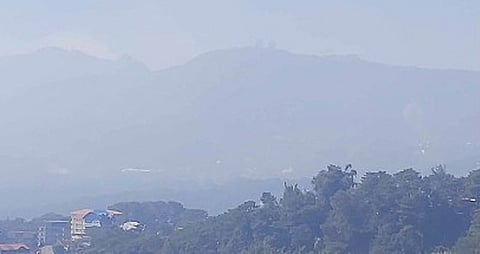
- NEWS
- the EDIT
- COMMENTARY
- BUSINESS
- LIFE
- SHOW
- ACTION
- GLOBAL GOALS
- SNAPS
- DYARYO TIRADA
- MORE

BAGUIO CITY — The United Nations Office for Disaster Risk Reduction (UNDRR) has urged local governments, including Baguio City, to adopt ten key measures aimed at strengthening disaster resilience.
Central to these measures is the establishment of inclusive, multi-hazard early warning systems (MHEWS) that also address the needs of people with disabilities. These guidelines were highlighted during a two-day workshop held on August 29–30, 2025, at the New Town Hotel, attended by the Local Council on Disability Affairs (LCDA) and various organizations representing persons with disabilities.
The recommendations stem from the Sendai Framework for Disaster Risk Reduction 2015–2030, which calls for people-centered and multi-sectoral systems to improve preparedness and response. The UN defines an early warning system as an integrated mechanism of monitoring, forecasting, and communication that allows timely action to minimize disaster risks.
A multi-hazard early warning system, the UNDRR stressed, should address hazards that may occur individually or simultaneously, while considering their combined impacts.
Ten Essentials for City Resilience
The UNDRR outlined ten essential areas for resilience:
Organize for resilience: Establish clear leadership and coordination
Understand risk: Identify and use risk scenarios
Strengthen finances: Improve financial capacity for resilience
Promote resilient urban development: Plan and build with risks in mind
Protect natural buffers: Safeguard ecosystems that provide protection
Build institutional capacity: Strengthen governance to manage risks
Strengthen societal capacity: Enhance community preparedness and social cohesion
Increase infrastructure resilience: Build more durable essential infrastructure
Ensure effective response: Plan for timely and effective disaster response
Expedite recovery: Recover quickly and “build back better” after disasters
To track progress, the UNDRR advised local governments to collect comprehensive data on existing laws, policies, and plans for disaster risk reduction, as well as organizational roles in MHEWS, risk assessments, warning protocols, and response systems.
The UN also emphasized the importance of integrating traditional and indigenous knowledge into these systems to ensure culturally grounded disaster preparedness.
